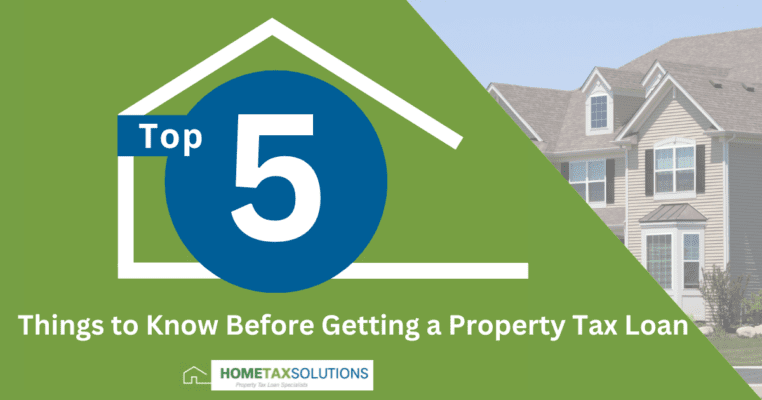Property taxes are an inevitable aspect of homeownership, but they can sometimes become overwhelming. If you find yourself in a financial bind and are considering a property tax loan, it’s crucial to be well-informed before making a decision. While property tax loans can offer relief, they require careful consideration. Here are the top five things to keep in mind before venturing into the realm of property tax loans:
1. Timely Payments Are Key: Avoid Delay and Neglect
Procrastination seldom resolves financial issues, particularly concerning property taxes. Delaying or ignoring property tax payments can result in costly consequences. Taxing authorities, such as your county, may impose fines for missed payments, along with accruing interest and attorney fees. Opting for a property tax loan rather than ignoring payments can help you avoid escalating financial challenges.
2. Choosing the Right Lender: A Critical Decision
Not all property tax lenders are created equal. It’s essential to ensure that your lender is licensed by your state. A refusal to provide a license number should raise a red flag. Additionally, research your lender’s Better Business Bureau (BBB) rating for added assurance. Once you’ve selected a lender, gather comprehensive information about available options, including grace periods and repayment plans.
3. Understanding Property Tax Loans: Safeguarding Your Home
Property tax loans serve as a safeguard against foreclosure due to unpaid taxes. If you’re unable to cover your tax obligations, a property tax lender intervenes, settling the debts and structuring a personalized repayment plan. When the lender pays off your taxes, they assume the lien on your property, granting them the right to foreclose in the event of loan default. Property tax loans offer a pathway to retaining your home, along with customized repayment terms and direct communication with your financial intermediary.
4. Benefits of Property Tax Loans: Partnering in Financial Relief
Property tax lenders are your allies in times of financial distress. Designed to prevent penalty accumulation and collection fees, property tax loans provide relief. Most lenders do not require upfront payments and halt tax-related lawsuits promptly. Compared to county payment plans, property tax loans typically feature lower monthly charges and offer flexibility for advance payments without extra fees.
5. Explore Alternatives: More Than Just Loans
Before committing to a property tax loan, explore alternative options. If you’re over 65 or disabled, tax deferral programs may be available, postponing payments until specific conditions are met. Additionally, negotiating a payment plan directly with the tax office is an option mandated by law. Lastly, applying for a property tax loan remains a viable choice, especially when partnering with a reputable lender who simplifies the process.
When property taxes become burdensome, a property tax loan can provide much-needed relief. By understanding the implications, researching lenders, and exploring alternatives, you can make an informed decision that aligns with your financial well-being. Remember, knowledge is your greatest asset when navigating property tax loans.
Consider Home Tax Solutions: Your Trusted Property Tax Lender in Texas
As you consider your options, remember that Home Tax Solutions is here to assist you. We are a reputable property tax lender in Texas, offering loans designed to alleviate financial burdens while helping you retain ownership of your home. Our commitment to transparency, competitive terms, and personalized repayment plans sets us apart as a partner you can trust. Feel free to reach out to us for expert guidance and tailored solutions to meet your unique needs.



